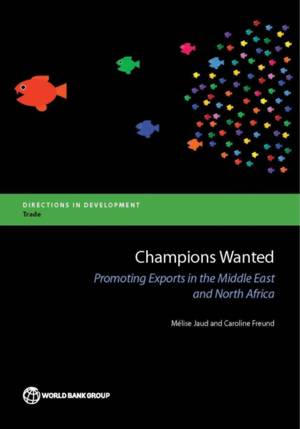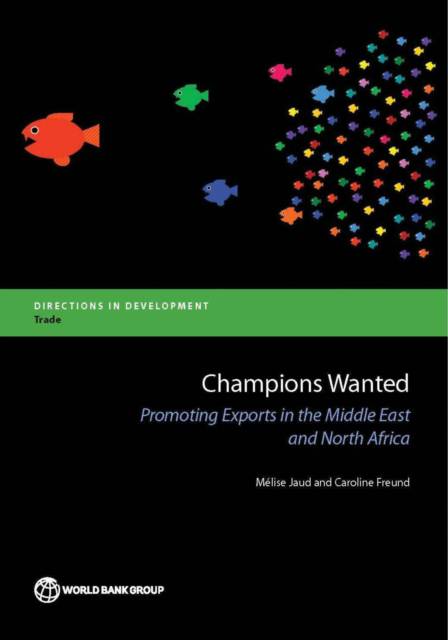
- Retrait gratuit dans votre magasin Club
- 7.000.000 titres dans notre catalogue
- Payer en toute sécurité
- Toujours un magasin près de chez vous
- Retrait gratuit dans votre magasin Club
- 7.000.0000 titres dans notre catalogue
- Payer en toute sécurité
- Toujours un magasin près de chez vous
50,95 €
+ 101 points
Description
While other emerging regions were thriving, MENA's aggregate export performance over the past two decades has been consistently weak. Using detailed firm-level export data from Customs administrations, this report explains why. One central finding is that the size distribution of MENA's exporting firms is suggestive of a critical weakness at the top. With the exception of the top firm, MENA's elite exporters are smaller and weaker compared to their peers in other regions. The largest exporter is alone at the top-Zidane without a team. MENA countries have failed to nurture a group of export superstars which critically contribute to export success in other regions. Part of the reason behind weak export performance is the lack of a competitive real exchange rate. The deleterious effects of an uncompetitive currency can be traced all the way down to the firm, hurting expansion at the intensive and extensive margin and preventing the emergence of export take-offs. The lack of heavy weight exporters at the top of the distribution also reflects the region's failure to push for trade and business climate reforms energetically. Finally, MENA's prevalent cronyism and corruption under pre-Arab Spring regimes (at least) confirms that business-government ties led to distortionary allocation of favors and rent dissipation by beneficiary firms, with little evidence that those firms developed into national champions or helped lift the region's export performance. The possibility of state capture in itself should call for caution when advocating any form of government intervention. In contrast, some interventions, like export promotion programs show effects on small exporters. However, because these firms are marginal in trade, such programs cannot be game changers. More broadly, the success of MENA countries in promoting export growth and diversification as well as generating jobs depends heavily on their ability to create an environment where large firms can invest and expand exports and new, efficient firms can rise to the top.
Spécifications
Parties prenantes
- Auteur(s) :
- Editeur:
Contenu
- Nombre de pages :
- 88
- Langue:
- Anglais
- Collection :
Caractéristiques
- EAN:
- 9781464804601
- Date de parution :
- 10-04-15
- Format:
- Livre broché
- Format numérique:
- Trade paperback (VS)
- Dimensions :
- 178 mm x 254 mm
- Poids :
- 172 g

Les avis
Nous publions uniquement les avis qui respectent les conditions requises. Consultez nos conditions pour les avis.






